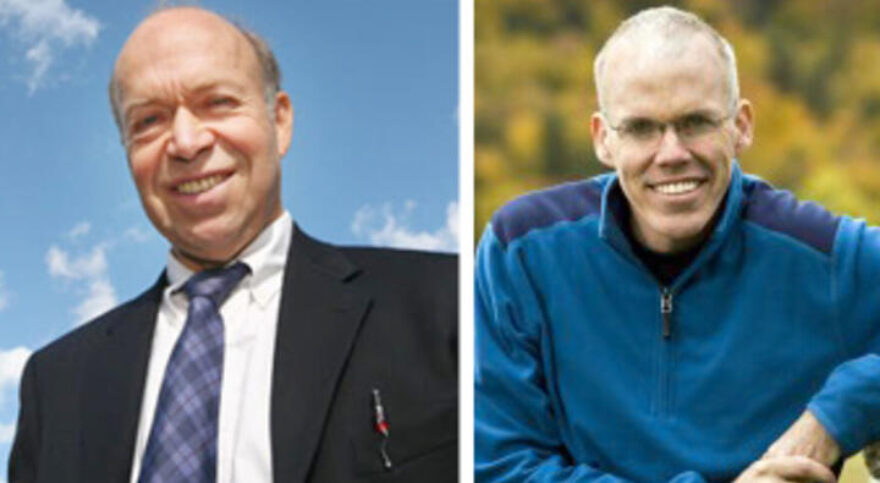Hollywood Writers, Producers Gather at Home of Norman Lear to Hear Presentations on Climate Change and Sustainability

Hollywood, Health & Society co-hosted an exclusive event at the home of entertainment icon Norman Lear on Nov. 11, bringing together many of the industry’s top writers, producers and executives to hear presentations by leading climate specialists, with the goal of increasing the number of storylines about climate change and sustainability in TV, movies and new media.
“Norman’s work showed us that entertainment with the guts to address the most controversial issues of our time can change society,” said HH&S Director Sandra de Castro Buffington in welcoming remarks to the assembled guests. She told them that HH&S for more than a decade has served as a free resource to writers and producers, connecting them with specialists on a wide range of health topics.
“Today, we bring you some of the leading experts in climate change,” Buffington said. “We hope you are entertained, informed and inspired to address it in your storylines.”
The 75 guests heard presentations from three speakers: Bill McKibben, author and environmental activist; Dr. James Hansen, director of the NASA Goddard Institute for Space Studies; and Kevin Hussey, manager of NASA-JPL’s Visualization Technology Applications Development Group. Hansen delivered his presentation through Skype from the East Coast, where his home had been damaged by Superstorm Sandy.
The speakers emphasized the urgency of the climate change threat, and discussed how it will affect people throughout the world. To respond to the growing crisis, McKibben’s message was simple: “Organize, organize, organize”—bring people together, hold events and press political leaders to take immediate action. He has mobilized young people in nearly every country to demonstrate peacefully on behalf of alternatives to the use of fossil fuels. It was an idea shared by Hansen, who also called for collective legal action.
As a practical, personal way to combat global warming, Hansen suggested following as close to a vegetarian diet as possible. A 2006 report by the United Nations Food and Agriculture Organization (FAO) said that our carnivorous ways—specifically, producing meat for the table—cause more greenhouse gases such as carbon dioxide, methane and nitrous oxide to spew into the atmosphere than either transportation or industry.
Putting climate change in a slightly larger context, Hussey took the guests into space for a view of our planet seen through NASA’s Eyes on the Earth, in which an armada of satellites monitor the vital signs of the atmosphere, land and oceans in real time. At one point Hussey cited the detection of gravitational changes in ice sheets as they lose mass, calling it irrefutable evidence that the planet is warming.
Following a spirited Q&A session, guests were enthusiastic and energized about what they had seen and heard. With Hollywood’s ability to reach millions of audience viewers around the world, entertainment has the potential to greatly increase awareness about climate change and sustainability, and change global behavior.
Hollywood, Health & Society, a program of the USC Annenberg Norman Lear Center, has provided the entertainment industry with access to leading health experts to increase the quality and quantity of health storylines in TV, film and new media. That effort includes climate change through funding from the Grantham Foundation, the Barr Foundation, ClimateWorks, the Skoll Global Threats Fund and an anonymous donor.
